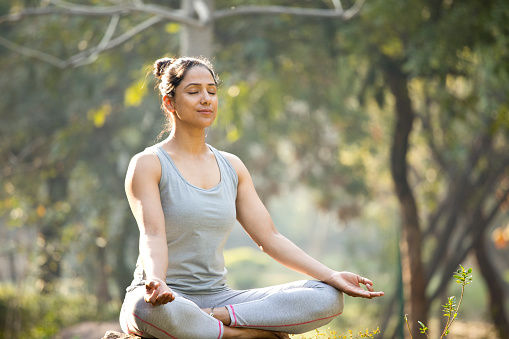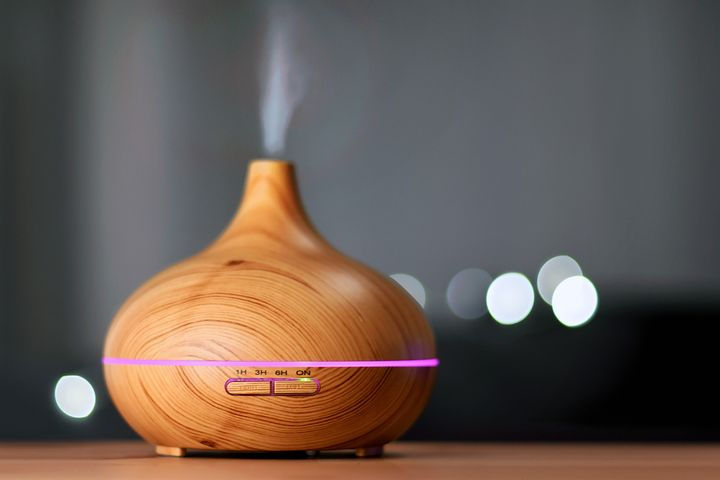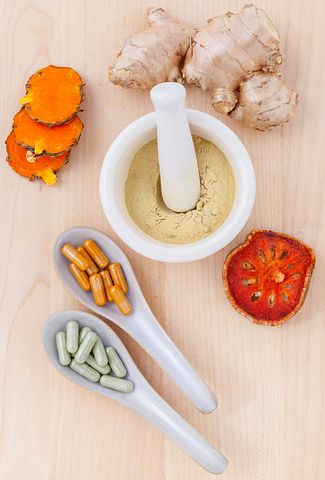
For the final part of this series concerning Sleep Health, we are going to discuss some Complimentary Health options that you can begin trying today to assist you with getting a good, restful night’s sleep. Just as a review, the 3 previous portions of this series: 5 Strategies to Help You Sleep Well, 6 Tips to Help You Ease into Sleep and 8 Tips for Adjusting your Sleep Environment for your Best Night’s Sleep are available on the website for your review.
These Complimentary options are going to be broken down into 2 categories: 1) Mind & Body practices and 2) Natural products. As the name implies these approaches are meant to compliment NOT replace conventional medical treatment for serious sleep disorders. My hope is that you can find a combination of things from these 4 blog postings that will suit your needs and assist you in improving if not resolving the sleep issues that you may have.
The Mind & Body practices are as follows:

1. Acupuncture and Acupressure.
Acupuncture dates back thousands of years and is rooted in Eastern healing practices. It involves regulating the energy flow through inserting very fine needles at specific points on the body where they can increase, decrease or balance the energy flow there. Acupressure is a close cousin to Acupuncture in that it relies on the same energy line system but it instead uses finger pressure instead of the needles to stimulate the points. While scientific proof is still lacking it might be worth a try especially if chronic pain is contributing to your sleep difficulty.

2. Mindfulness and Meditation.
Being mindful means being completely present to the feelings, sensations and experiences of the moment. Removing distractions and tuning into nature or even your own breath to have no sense of worry, fear, demand, need or any expectation of what should be. It is allowing life to unfold as it does naturally. Meditation is a practice where we are focused on calming the mind. It allows us, with enough practice, to balance the physical, emotional and mental states. Either of these practices can assist if your sleep disturbance is from troublesome thoughts or worries.

3. Relaxation Techniques.
In Part-2 we already discussed active relaxation techniques of PRM, abdominal breathing and visualization.

4. Massage and Bodywork.
Hands-on approaches like massage have numerous known benefits of stress reduction, improved circulation, releasing tension, lowering heart rate and blood pressure and improving the immune system. The relaxing effects of massage make it helpful in restoring restful sleep patterns, especially if they arise from stress, headaches, muscle and joint pain or generalized pain.

5. Yoga.
Yoga originated in India and is one of the world’s oldest health practices. It is based on the principal that mind, body and spirit work in unison. If one part is affected, than the other two will be affected with restlessness, decreased health or depletion of spirit respectively. There are many benefits associated with yoga including improved circulation, flexibility of the muscles and joints, relaxation and improved sleep. The relaxation achieved with yoga requires a fixed attention to internal states of breathing, and the feeling in the muscles and the body. Through that fixed attention the flow of stress hormone through the body is slowed and the mind, body and spirit are connected and relaxed.
The Natural Products are as follows:

1. Aromatherapy.
Aromatherapy is the therapeutic use of essential oils to comfort and heal. The oils are used topically or diffused into the air as opposed to being taken internally. The essential oils stimulate an area of the brain known as the limbic system that controls mood and emotion. Many people find it a soothing compliment to other self-help measures in helping with easing tension, promoting relaxation and assisting with sleep. The essential oils that are known to be calming are: Bergamot, Chamomile, Clary sage, Lavender, Lemon Balm, Orange, Rose, Sandalwood, Sweet marjoram and Ylang-ylang. You could try adding a few drops to a relaxing bath or foot bath, a small spritz to a handkerchief or a small pillow, using a heat diffuser with a few drops mixed with water, or combining it with a massage oil. DO NOT put undiluted essential oil on your skin, it always needs to be mixed with a carrier oil like almond or grape-seed oil.

2. Melatonin and related supplements.
Melatonin is a hormone that is produced by the pineal gland. The production and release of melatonin is related to the time of day and the amount of light. Evidence shows that melatonin may be beneficial in treating some sleep disorders like delayed sleep phase disorder, insomnia, jet lag and sleep problems that are related to a work schedule / shift. Discuss this option with your doctor for advice with the supplement use as there are side effects and known interactions with other medications.

3. Herbs.
Plants have been used as nature’s primary medicine for thousands of years. A common thought associated with herbs is that since they are natural, they are automatically gentler and do not have side effects like pharmaceutical drugs do. That is not always the case and the herbal preparations (capsules) are not as strictly regulated as pharmaceutical medications are. They can have side effects and interactions with prescription medications so be sure to discuss this form of herb use with your doctor or pharmacist before using them.
Herbal remedies can be taken a number of ways. They are available as teas, capsules, tinctures and liquid extracts for internal use and in baths, compresses or poultices for external use.
Herbal teas, either home-made or prepackaged teas, are typically consumed about 30 minutes before bedtime for the most benefit.
In helping with sleep difficulties mainly associated with stress and anxiety the herbs commonly used are: Valerian, Hops, Passionflower, Chamomile, St John’s Wort and Lemon Balm.
Basic guidelines for herb safety: Follow recommended doses, Stop using the remedy if you have any side effects, Do not collect herbs from the wild, Only buy over-the-counter if the packet states what it contains, DO NOT take if you are pregnant or nursing, Follow the directions on the packet. Most herbal sedatives should be taken 30-45 minutes before bedtime.
I hope that you have enjoyed and learned a number of good tricks and tips from this 4-part series for Sleep Health. Please leave a comment on your favorite section, part or suggested activity or to let me know how you are faring with your sleep health.
Reference:
Giles, G. (2019) Sleep Well Live Well. Publications International Ltd.
https://www.everydayhealth.com/sleep/how-put-racing-mind-bed-sleep-now/
https://www.headspace.com/sleep/how-to-sleep-better
https://www.helpguide.org/articles/sleep/getting-better-sleep.htm
https://www.hopkinsmedicine.org/health/wellness-and-prevention/natural-sleep-aids- home-remedies-to-help-you-sleep
Next Time:

Stay tuned for my next blog in 2 weeks for Healthy Eating Part-1 with big-picture tips for eating better!
Related Post Links: Sleep Health Part 1:
Sleep Health Part 2:
Sleep Health Part 3:
Author: Jen Hassaj | 12-28-2022



Comments